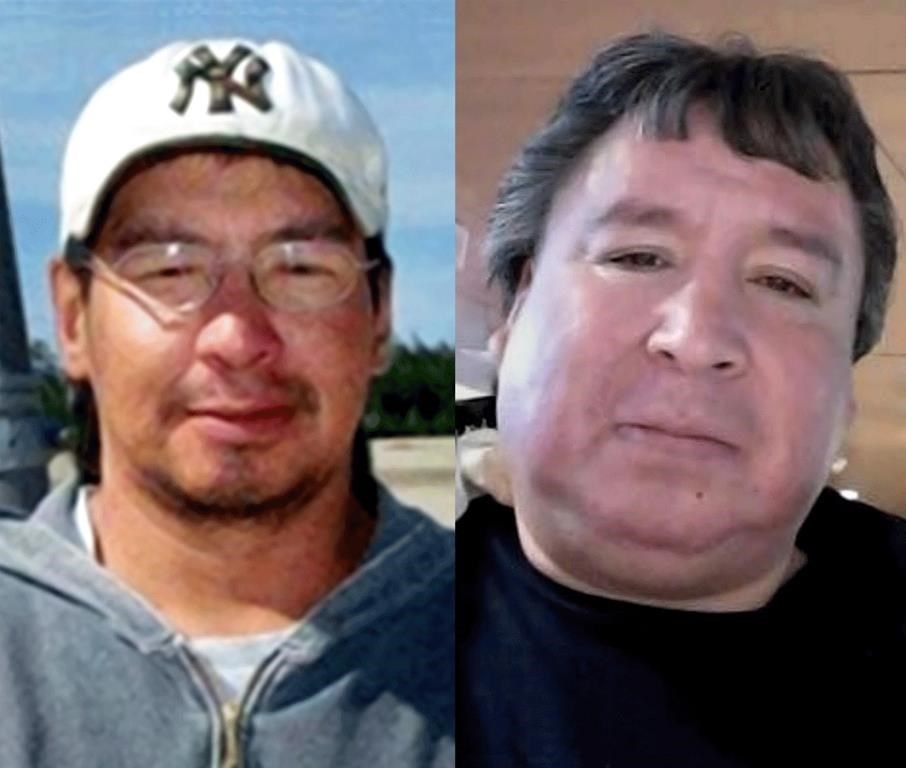Officers with Thunder Bay police had a "lack of human compassion" for people they were interacting with at the time when two men died of medical conditions while in custody, the force's acting police chief told an inquest on Wednesday.
Dan Taddeo was testifying in the northern Ontario city at the joint coroner’s inquest into the 2014 death of Donald Mamakwa and the 2017 death of Roland McKay.
Both Indigenous men died of medical conditions while in custody at police headquarters after being arrested on suspicion of public intoxication. The inquest has heard that neither were assessed by a doctor or nurse before they died.
Taddeo said he generally agreed with a lawyer for the men's families that the culture at the police force at the time of the deaths allowed stereotypes to fester.
"You become a bit of a product of your environment," Taddeo said. He pointed to a lack of resources in the city to support people with addictions and other challenges, which he said led to "compassion fatigue" among officers who were interacting with similar situations every day.
"You lose the human element, which is so unfortunate."
Taddeo told the inquest that a failure of police culture and leadership allowed the lack of compassion to fester.
He testified that he's seen improvements in police culture in the years after the two deaths, though he said there was still a lack of resources for police and services like addictions supports.
Taddeo said videos showing how Mamakwa was treated during his arrest are "not even close" to the police force he sees today, and said both men should not have been in custody.
"These two gentlemen should never have been in our cells," he said.
The inquest has heard that both men had chances of survival if they had been taken to the hospital.
In Mamakwa's case, the inquest heard his condition was very treatable. He died from complications from diabetes, sepsis and chronic alcoholism, a forensic pathologist testified.
Inquest jurors heard that Mamakwa asked to be taken to hospital at the time of his arrest, and asked other people in custody for help while he was in the cell.
Taddeo, who was appointed acting chief of police in June after the suspension of chief Sylvie Hauth, testified about recent instructions that went out last year about "medical clearance," emphasizing that people in custody should be continuously assessed.
He noted that Mamakwa was not checked on routinely, as dictated by policy at the time, and there was a clear "lack of care" in how he was treated.
At the time of Mamakwa's arrest, Taddeo testified that the term "medical clearance" was less formally defined and understood, and officers would generally have considered assessment by paramedics to count as medical clearance.
He said relationships between police and paramedics have also become formalized and police will wait for specific instructions to attend a scene if the call was initially for paramedics.
His testimony also touched on reconciliation efforts by Thunder Bay police, a force that's been heavily scrutinized by reviews that have found evidence of systemic racism in its treatment of Indigenous people.
Indigenous leaders have called for the police service to be disbanded because trust has been eroded.
Taddeo testified that all police service members are completing truth and reconciliation training within the next year, and cultural competency training will become part of regular training going forward.
He said it's "essential" that truth and reconciliation efforts are seen rather than just talked about. He suggested that the police service consider appointing a deputy police chief whose role be solely focused on Indigenous relations to ensure meaningful changes happen.
The inquest also heard testimony Wednesday from the administrator and secretary of the Thunder Bay Police Services Board, who said policies around deaths should be continuously reviewed.
Administrator Malcolm Mercer said he would see the benefit of police board debriefs following deaths like McKay's and Mamakwa's, though he noted that the tragedies appear to be outliers in the total number of similar arrests.
"If you’ve got a rare, significant event, it doesn’t seem to me to be unreasonable to ensure that what you can learn from it, you have learned from it," he said.
Wednesday marked the final day of evidence at the inquest, which began hearing from witnesses last month.
Closing submissions are expected on Thursday.
This report by The Canadian Press was first published Nov. 2, 2022.
Holly McKenzie-Sutter, The Canadian Press


